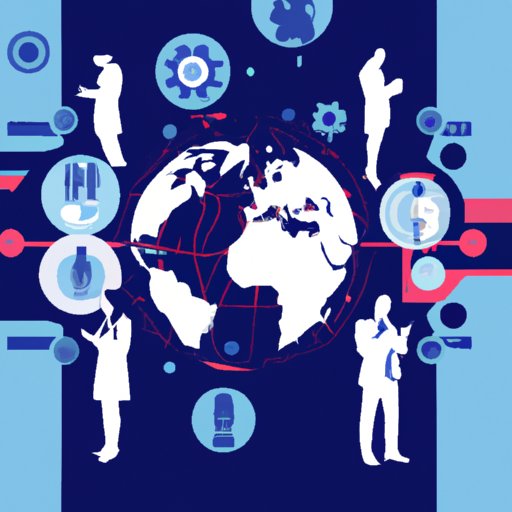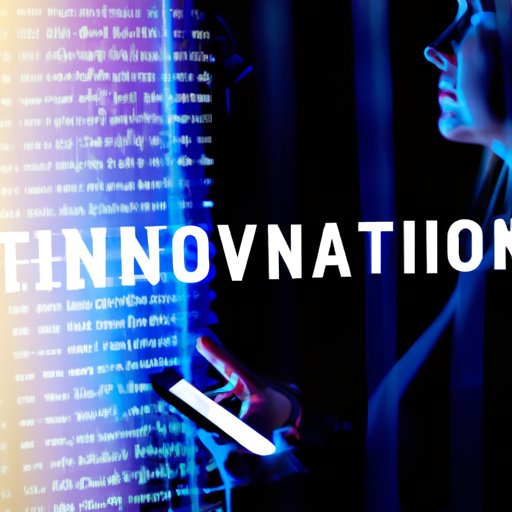

Should technology continue to advance? This question is not just academic; it’s a fundamental consideration for our future. Technological advancements have profoundly shaped human civilization, from the earliest tools to the digital age we inhabit today. But with this rapid progress comes a complex web of questions about the responsible use of power, the ethical implications of innovation, and the potential consequences for society as a whole. This article delves into these crucial questions, examining both the promise and peril of continued technological advancement. We will analyze various perspectives, explore potential solutions, and ultimately provide a comprehensive framework for thoughtful consideration. This discussion will cover the challenges, opportunities, and the critical role of responsible innovation in navigating this future. We will delve into diverse perspectives, from optimistic visions of progress to cautious acknowledgements of possible pitfalls.
The Unstoppable Force of Technological Advancement
A Historical Perspective
Throughout history, technological advancements have fundamentally altered human life. From the invention of fire to the development of the internet, each innovation has sparked profound social and cultural shifts. This relentless drive to innovate, to create, and to improve upon existing technology has undeniably shaped the world we live in today. Consider the steam engine, the automobile, and the computer—each revolutionizing industries, creating new jobs, and altering our very interactions with one another and our surroundings. Yet, these advancements have not always been without unforeseen consequences. It is this delicate balance between progress and potential pitfalls that this article explores. The key to a prosperous future lies in understanding both the immense potential and the potential risks of continued technological advancement.
Navigating the Ethical Crossroads of Innovation
Ethical Dilemmas and Societal Impact
The ethical implications of technological advancement are multifaceted. The development and implementation of new technologies frequently raise difficult ethical questions about privacy, security, and accountability. Autonomous vehicles, for example, present challenging ethical dilemmas regarding decision-making in accident scenarios. Similarly, artificial intelligence (AI) systems, capable of increasingly sophisticated tasks, raise concerns about job displacement, algorithmic bias, and the potential for misuse. These are just a few of the important dilemmas that policymakers and innovators must grapple with. Looking ahead, we must be prepared to address these challenges head-on if we are to ensure technology benefits all of humanity.
The Promise and Peril of Artificial Intelligence
A Double-Edged Sword
Artificial intelligence is rapidly transforming various industries and sectors. AI-powered systems are demonstrating impressive capabilities, from medical diagnosis to financial forecasting. This unprecedented speed of development prompts the question: can we effectively manage the complexities of this technology, anticipating its transformative impact on society? Beyond job displacement, concerns about algorithmic bias in AI systems require careful consideration, as do ethical dilemmas surrounding the use of AI in areas like surveillance and military applications. Striking a balance between reaping the benefits and addressing the risks remains a crucial objective.
Shaping a Future with Responsible Innovation
The Imperative of Ethical Considerations
Responsible innovation requires a proactive approach to anticipate potential societal consequences and ensure technology benefits all of humanity. This entails considering ethical frameworks, engaging in open dialogues with stakeholders, and establishing regulatory structures to manage the risks associated with technological advancement. Implementing comprehensive cybersecurity measures, fostering transparency, and promoting access to information are all crucial steps in mitigating the potential risks associated with technology.
The Urgent Need for Global Collaboration
Fostering Dialogue and Shared Responsibility
The global nature of technological advancement necessitates a collaborative approach to addressing its ethical and societal implications. International cooperation is vital in developing shared frameworks and standards for responsible innovation. This includes fostering open dialogues between governments, businesses, academia, and the public to establish guidelines and best practices. Only through global collaboration can we effectively manage the complexities and challenges of continued advancement.
The Future of Work and Employment
Addressing Potential Disruption
Rapid technological advancements have the potential to drastically alter the nature of work, and many jobs will need to be rethought in the context of automation and AI. To mitigate the potential for job displacement, investment in retraining and upskilling programs, coupled with a proactive approach to fostering innovative industries and sectors, is required. Governments must develop policies and frameworks to address the challenges posed by automation and foster economic adaptability.
Technological Advancement and Environmental Sustainability
Balancing Progress and Planet
Technological innovations can play a critical role in addressing environmental challenges. Advancements in renewable energy technologies, sustainable agriculture, and waste management systems offer hope for a more environmentally conscious future. Further research and investment in environmentally friendly technologies are essential for meeting climate goals and safeguarding the planet.
Frequently Asked Questions
Should Technology Continue to Advance?
This question delves into the ethical implications and societal impact of rapid technological advancements. The answer isn’t a simple yes or no but rather a multifaceted consideration. While technological progress offers unprecedented opportunities, it’s equally crucial to acknowledge potential challenges and implement responsible strategies to mitigate risks. This includes ethical frameworks, regulatory measures, and global collaborations. The future depends on our ability to leverage technology’s potential for good while addressing potential negative consequences.
What Are the Ethical Implications of AI?
The rapid advancement of artificial intelligence brings forth numerous ethical concerns, ranging from job displacement and algorithmic bias to the potential for misuse in surveillance and military applications. To navigate these complexities, developers, policymakers, and stakeholders must engage in proactive discussions to develop ethical guidelines and regulatory frameworks. This requires a focus on transparency, accountability, and ensuring that AI systems are designed and used in ways that benefit all of humanity.
Should technology continue to advance? Absolutely, but with a critical eye and a thoughtful approach. Continued technological advancements offer unprecedented opportunities for progress across numerous sectors, from healthcare to environmental sustainability. However, careful consideration of ethical implications and potential societal consequences is crucial. This includes proactive measures to address potential job displacement, ensure equitable access to technology, and prevent misuse or abuse. By embracing responsible innovation and fostering open dialogues about the future, we can harness technology’s potential for good while mitigating its risks. Learn more about the latest advancements and their impact on our world! Click here for the full article.